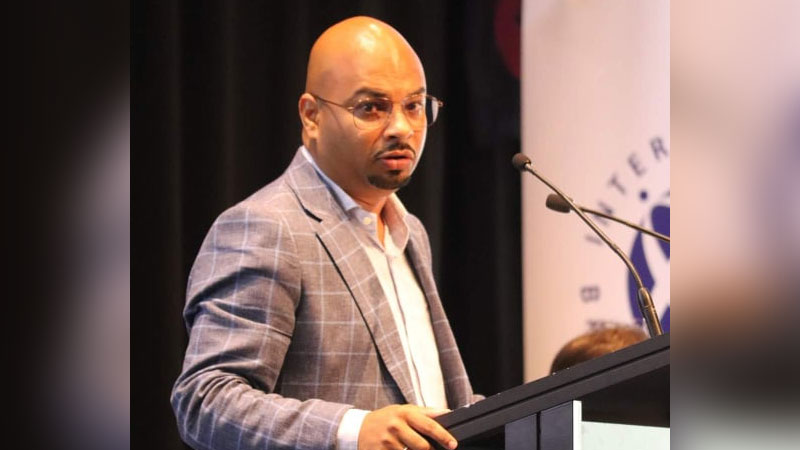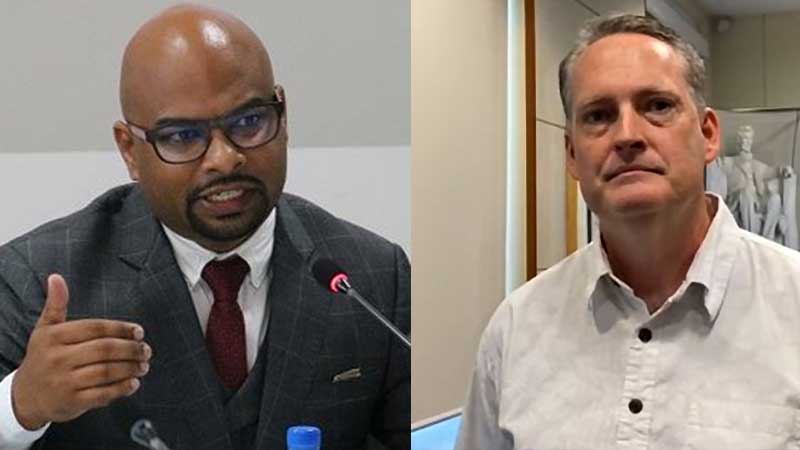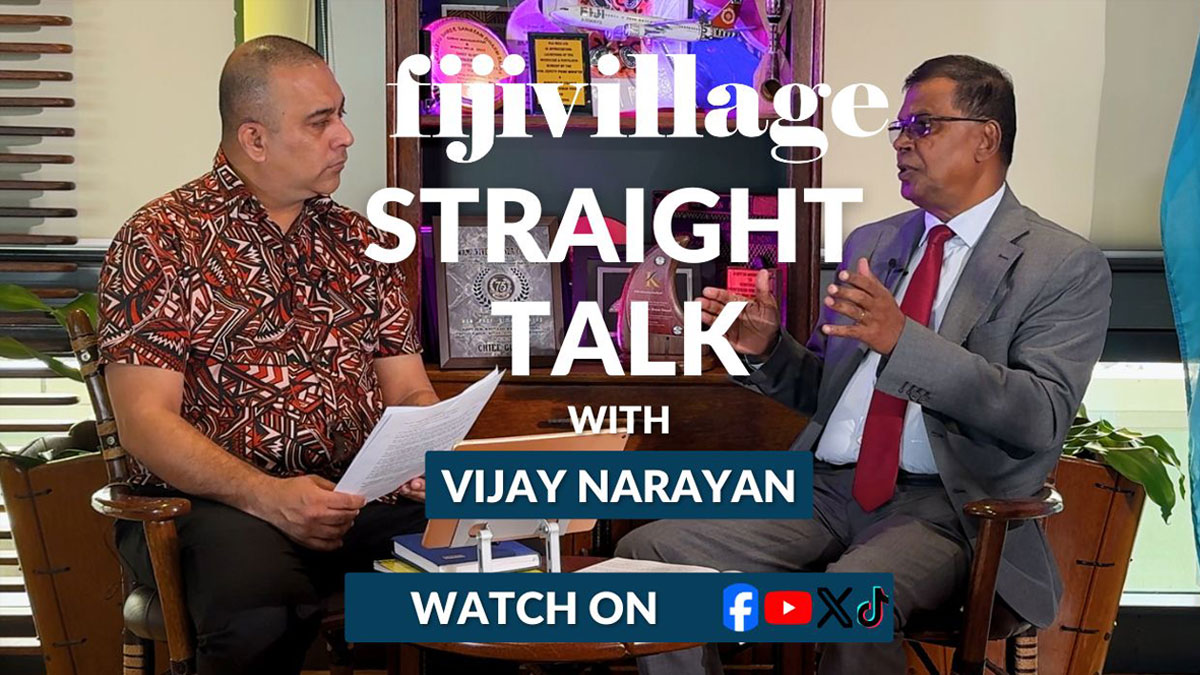
The Director of the Human Rights and Anti-Discrimination Commission Ashwin Raj says the 2020 report on human rights in Fiji issued by the US State Department is perfunctory, scant in its interpretation and deconstruction of the law, saturated with generalisations and selective in its treatment of facts.
Raj says while the report impugns independent institutions like the judiciary and those responsible for the protection, promotion and preservation of human rights, there was neither any consultations with the state and independent institutions including the Human Rights and Anti-Discrimination Commission in the formulation of this report nor any ethic of constructive engagement over the years, as far as the Commission is concerned, in relation to human rights in Fiji.
Raj further says this does not mean that Fiji does not have any human rights challenges, we certainly do.
The Commission Director says they include but by no means limited to sexual and gender-based violence, torture and brutality at the hands of law enforcement agencies, rights of arrested and detained persons, racial and religious intolerance and hate speech, the need for constructive discussions on the right to peaceful assembly and the imperatives of public order and national security, the existential threat of climate change and the advent of COVID-19 and its attendant human rights challenges, and the need to ensure that the national human rights institution is compliant with the Paris Principles but Fiji continues to subject itself to scrutiny both domestically and at the highest human rights forums internationally, the most recent being the third cycle of its Universal Periodic Review at the Human Rights Council in Geneva.
Raj adds curiously the US State Department Report does not even make a cursory reference to Fiji’s Universal Periodic Review almost giving an impression that there is no accountability for human rights violations in Fiji, nor does it document Fiji’s human rights achievements.
Raj says just like the United States, Fiji is equally concerned with torture and other cruel, inhuman, or degrading treatment or punishment and we have acknowledged this at home and internationally and the need for accountability without impunity for acts of violations of human rights.
He says the claims about carte blanche immunity extended to security forces, however, is a distortion of the law and a complete misrepresentation of section 157 of the Fijian Constitution giving an impression that this provision is still being invoked in present day cases of torture and brutality to exonerate security forces.
Raj also says the US human rights record is hardly worthy of emulation but Fiji does not occupy an indomitable moral plateau with the compulsion to ritualistically produce a report on them every year.
Raj says the US is a country that until recently had turned its back on the Paris Climate Agreement, had withdrawn from the UN Human Rights Council, placed sanctions against the International Criminal Court and has yet to ratify all core international human rights instruments.
He says these are the Convention on the Elimination of all forms of Discrimination Against Women, International Convention on the Protection, Convention on the Rights of the Child, International Covenant on Economic, Social and Cultural Rights, Convention on the Rights of Persons with Disabilities, International Convention on the Protection of the Rights of All Migrant Workers, and Members of Their Families, International Convention for the Protection of All Persons from Enforced Disappearance, Rome Statute of the International Criminal Court.
Raj further says it has yet to establish an independent national human rights institution adding that at the third cycle of its Universal Periodic Review, member states called on the USA to establish a moratorium on death penalty, to put an end to life without parole sentence for juveniles, an end to arbitrary and indefinite detention, illegal and secret detention facilities, overcrowding in prisons, police violence, use of excessive force and torture, racial profiling by law enforcement agencies, killing of civilians in military operations, gun violence, racism, extremism, xenophobia and hate speech directed at immigrants and asylum seekers, the adoption of punitive measures such as the incarceration of migrants and separation of migrant children from their parents to deter irregular entry and retrogressive policies that inhibit comprehensive and universal access to voluntary sexual and reproductive health services.
Earlier;

US Embassy’s Chargé d’Affaires to Fiji, Tony Greubel has today maintained that the US State Department’s 2020 Country Reports on Human Rights Practices in Fiji are factual in nature however the Director of the Fiji Human Rights and Anti Discrimination Commission, Ashwin Raj says the US report contains factual inaccuracies and has a scant interpretation of the law.
When questioned by Fijivillage if the US consulted the Human Rights Commission while compiling the report, Greubel says the country reports do not reach legal conclusions, rank countries, or draw comparisons across them and they do not attempt to catalog every human rights incident, nor are these reports an effort by the US government to judge others.
Greubel says their aim is always to identify human rights challenges and use their voice and position on the world stage to draw attention to abuses of human rights, no matter where or when they occur.
He adds that’s why each year, the US Government issues the Country Reports on Human Rights Practices, which address, as required by US law, the status of internationally recognized human rights in all countries that are members of the United Nations.
Greubel further says these reports provide an objective record of whether human rights and freedoms are being protected both by law and in practice around the world adding that the reports are prepared by US diplomatic missions that collect, analyze, and synthesize information from a variety of sources. He also says publicizing facts and verifiable information can encourage governments to change course and seek to end human rights abuses.
Greubel adds the information is gathered primarily from news articles and broadcasts and the US Embassy consults a wide variety of stakeholders in government, civil society, business, academia, and other field that represent the breadth of Fijian society to provide further context and analysis for all sections of the report.
When asked, Greubel confirmed that the report does not have the Fijian government’s response on human rights matters raised in the report.
When questioned by Fijivillage, Raj confirms that there was neither any stakeholder consultation in the formulation of the US report, nor any ethic of constructive engagement of the State Department on these human rights matters with the national human rights institution.
Raj confirms that he will be responding to the US State Department Report on Fiji in relation to not only factual inaccuracies and scant interpretation of the law but also the substantive human rights matters emanating from these inaccuracies and skewed interpretation of the law.
Greubel says they will be having government to government negotiations.
He says they will be working with Fiji in addressing the issues that have been highlighted.
The US report says significant human rights issues in 2020 included : cases of cruel, inhuman, or degrading treatment, in some cases leading to death; restrictions on free expression, such as substantial interference with the right of peaceful assembly; and trafficking in persons.
The US State Department Report says the Fijian government investigated some security force officials who committed abuses and prosecuted or punished officials who committed abuses elsewhere in the government; however, impunity was a problem in cases with political implications.
When questioned by Fijivillage on whether any talks have been held on the report with Fiji, Greubel they are yet to receive a response from the Fijian Government in regards to the recent report.
We have also asked the Prime Minister, Voreqe Bainimarama on the government’s stand on the State Department Report on Fiji. He is yet to comment.

The Director of the Fiji Human Rights and Anti Discrimination Commission, Ashwin Raj says the US State Department’s 2020 Country Report on Human Rights Practices in Fiji contains factual inaccuracies and has a scant interpretation of the law while US Embassy’s Chargé d’Affaires to Fiji, Tony Greubel confirms that the report does not have the Fijian government’s response on human rights matters raised in the report.
When questioned by Fijivillage, Raj confirms that there was neither any stakeholder consultation in the formulation of the US report, nor any ethic of constructive engagement of the State Department on these human rights matters with the national human rights institution.
Raj confirms that he will be responding to the US State Department Report on Fiji in relation to not only factual inaccuracies and scant interpretation of the law but also the substantive human rights matters emanating from these inaccuracies and skewed interpretation of the law.
Greubel says a lot of the findings were based on media sources, police and government agencies and they will be having government to government negotiations.
He says they do human rights reports for every single country and it is a way of pointing out things they all can be doing better.
Greubel says they will be working with Fiji in addressing the issues that have been highlighted.
The US report says significant human rights issues in 2020 included : cases of cruel, inhuman, or degrading treatment, in some cases leading to death; restrictions on free expression, such as substantial interference with the right of peaceful assembly; and trafficking in persons.
The US State Department Report says the Fijian government investigated some security force officials who committed abuses and prosecuted or punished officials who committed abuses elsewhere in the government; however, impunity was a problem in cases with political implications.
When questioned by Fijivillage on whether any talks have been held on the report with Fiji, Greubel they are yet to receive a response from the Fijian Government in regards to the recent report.
We have also asked the Prime Minister, Voreqe Bainimarama on the government’s stand on the State Department Report on Fiji.
He is yet to comment.
Stay tuned for the latest news on our radio stations

